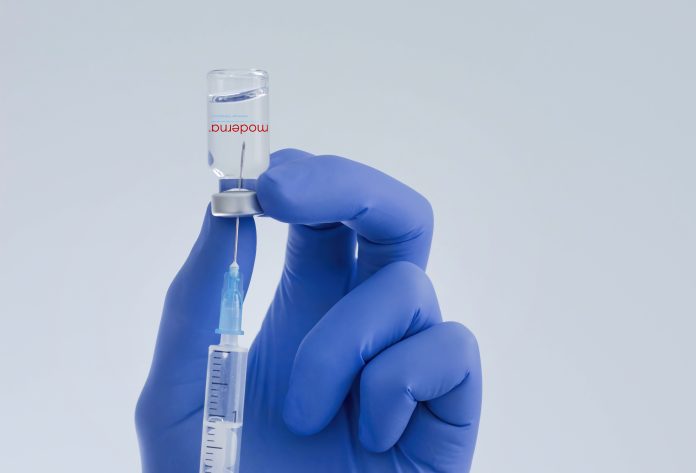The Moderna COVID vaccine will initially be given to patients in Wales – meaning that the UK now has use of three vaccines
Today (7 April) the vaccine begins rollout in the UK. The first person to receive the Moderna vaccine is Ella Taylor from Ammanford, who is an unpaid 24 year old carer.
She said: “I’m an unpaid carer for my grandmother so it is very important to me that I get it, so I can care for her properly and safely.”
The UK has secured an order of five million doses so far. Moderna will attempt to manufacture up to 1 billion doses over 2021.
Is the Moderna vaccine effective?
The short answer is yes. It is working well in the US population, who have been administering doses since December, 2020.
The Moderna vaccine is similar to Pfizer, in that it uses mRNA technology to deliver protection against COVID-19.
Here, we explain what mRNA really means.
At final stages of clinical trials, the Moderna COVID vaccine appeared to perform at 94.1%. When real-world data from the US was collected, it appeared to support initial optimism with the Moderna vaccine performing at 90%.
Interestingly, a single dose of Moderna appeared to protect an individual at 80% efficacy after 14 or more days. The vaccines were also found to decrease asymptomatic infections. This will decrease how many people never develop symptoms, but carry the infection in their bodies and begin chains of transmission.
Moderna is slightly easier to transport across a cold supply chain – it can remain usable at -20C, for up to six months, and kept in a normal fridge temperature for up to a month. On the other hand, Pfizer needs much colder storage at roughly -75C, while surviving in a fridge for five days.
Moderna say they are on track to manufacture 500 million to 1 billion doses in 2021. There is increasing pressure to make sure that the vaccine is distributed equally, especially to the Global South populations.











